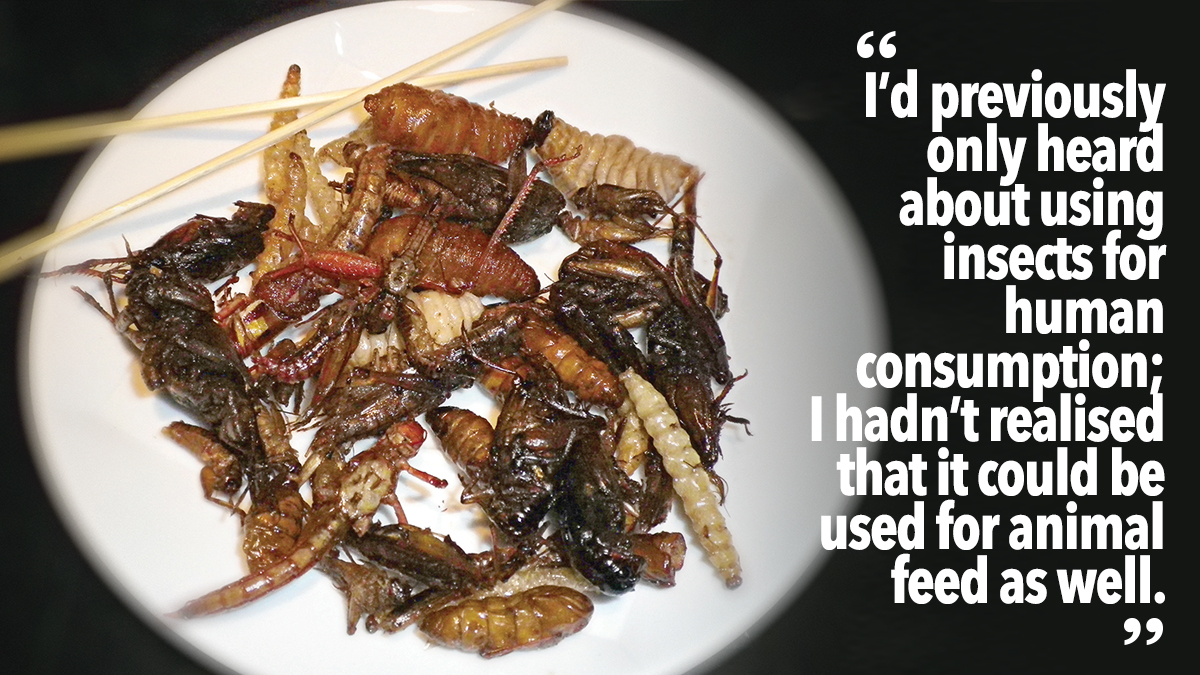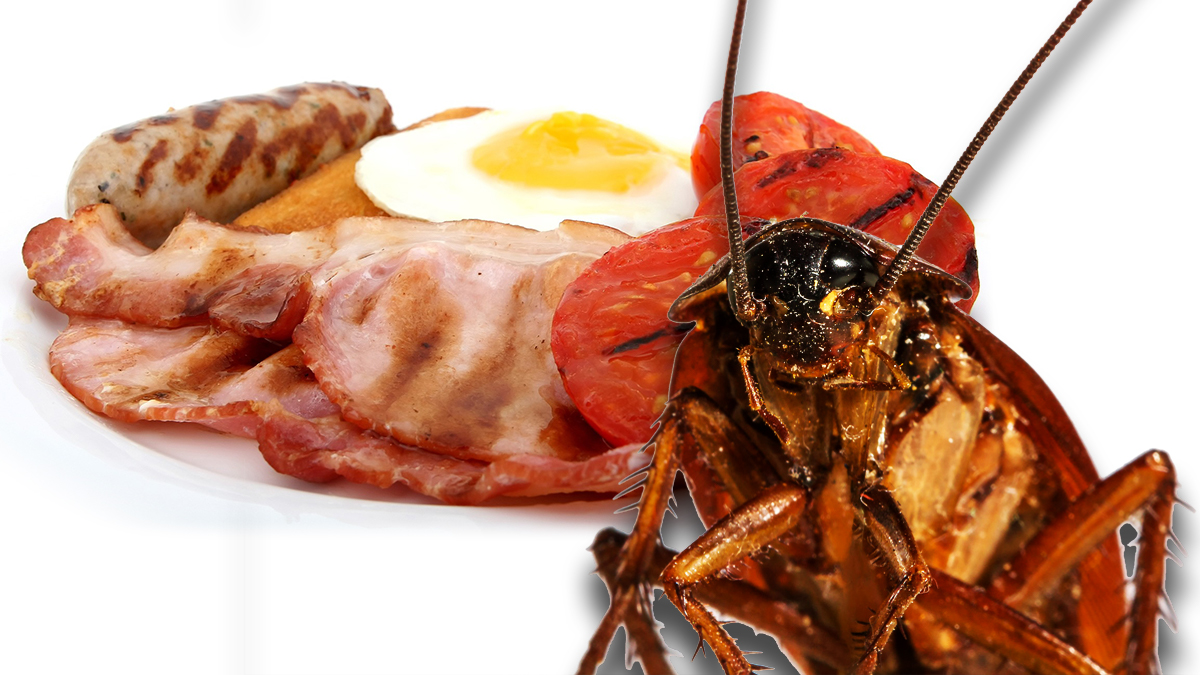For many, having an insect anywhere near your breakfast would be cause enough to call a pest management company. But what if your breakfast bacon had been fed on insects? Would the thought of pigs fed on cockroaches, put you off your butty?
One Warwickshire-based student is trying to find out.

Tom Evans is studying UK consumers’ perception of insect protein as an animal feed and human food source.
“Last year I went to a conference in Berlin called INSECTA and it was about insect production and using insects for animal food and for human consumption.
“I’d previously only heard about using it for human consumption; I hadn’t realised that it could be used for animal feed as well, which was heavily emphasised at the conference”.
Tom, an Agri-business student at Harper Adams University, has been gauging the general public’s perception.
“I created and shared a questionnaire with about 30 questions, from demographic to a food neophobia score which rated each participants’ aversion to eating new things, thus measuring how scared consumers are about new foods.
“I worked with a sample of 427 respondents for my survey and, despite some mixed reviews, overall the perception was positive.”
Solving the food problems of the future
Insect-protein-fed livestock provides a future solution to traditional protein feed sources - such as soya.
Tom explains:
“In the fish industry, for example, most of the protein in the feed is from soya or fishmeal.
“Fishmeal isn’t sustainable as it’s derived from other fish and soya is produced in tropical countries around the world, with some detrimental environmental impact”.

With the 2050 worldwide population estimated at nine billion people, the way we farm and produce food will be a serious discussion point.
Tom says it simply enough:
“Something needs to change so that we can all eat.”
So, will we see insect-fed bacon on supermarket shelves?
Tom thinks so, saying he believes insects will be used for fish food and possibly even for poultry and pigs.
Cockroaches crunch waste in China

Look East and we can already find innovative uses for pest-insects, that go far beyond pig-fed.
Back in December, Reuters reported that a billion cockroaches are being fed with 50 tonnes of kitchen waste a day.
Chinese cities are generating more food waste than they know what to do with.
The article states that waste arrives at the plant run by Shandong Qiaobin Agricultural Technology Co, and is then fed through pipes to cockroaches in their cells.
China has a ban on using food waste as pig feed due to African swine fever outbreaks.
Liu Yusheng, president of Shandong Insect Industry Association, said:
“Cockroaches are a bio-technological pathway for the converting and processing of kitchen waste. It’s like turning trash into resources.”
So, we eat our dinner. What we waste gets eaten by the cockroaches. The cockroaches get eaten by the pigs. The pigs get eaten by us. Beautiful, eh? A change in attitude
Tom’s research suggests the UK isn’t ready for the direct consumption of insects, or them being milled into flour for products like flapjacks.
He is however convinced we’ll all have a pest-based diet to some degree.
“The majority of participants were willing to include them in their diet if they were deemed better for the environment; more sustainable, less greenhouse emission, smaller carbon footprint, as long as they couldn’t see the insect parts in a product.”
“But the sample studies also indicated they would never replace insects for meat.”
And why not?
In Germany, there are companies producing insect burgers. In Holland, there are restaurants offering insect burgers on their menus. In Switzerland, you can already buy insect burgers from the supermarket.
What do you think? Would you eat pest-fed bacon? Use the comments section below to make your feeling known or email hello@bpca.org.uk
Want to write for BPCA? Contact hello@bpca.org.uk for information.
Source: Online